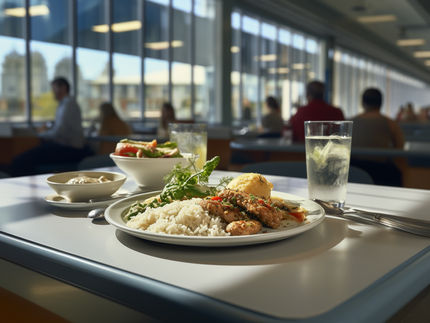CSIC researchers address the future of the Mediterranean diet in the context of climate change
Advertisement
Six CSIC researchers experts in biotechnology, agricultural and food sciences will address the future of the Mediterranean diet in the context of climate change, in the second meeting of the Cicero Itineraries, which aims to bring science into contact with administrations, companies and journalists. The event will be held on Wednesday, June 14 at the Royal Botanical Garden and the CSIC Science Library, at the institution's headquarters. Experts will explain the knowledge provided by science to maintain the essence of the Mediterranean diet.
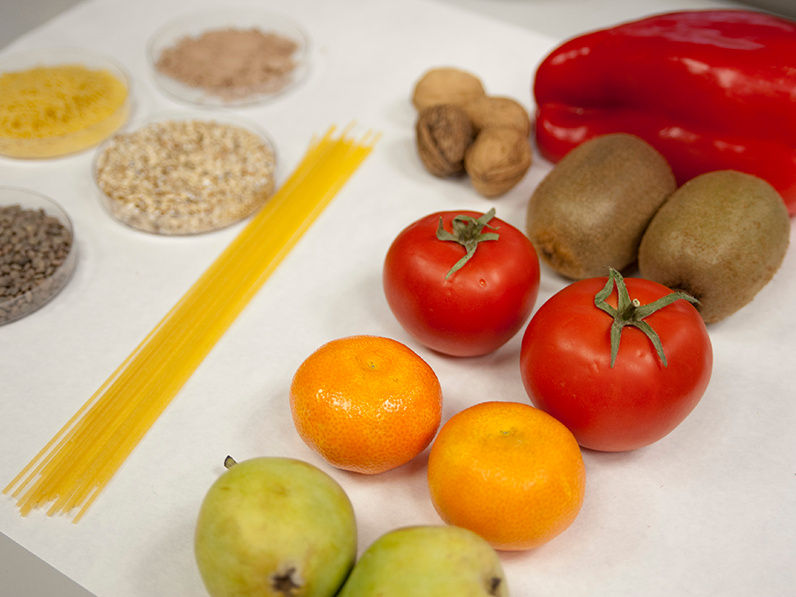
The Mediterranean diet is based on local and seasonal products.
ICTAN
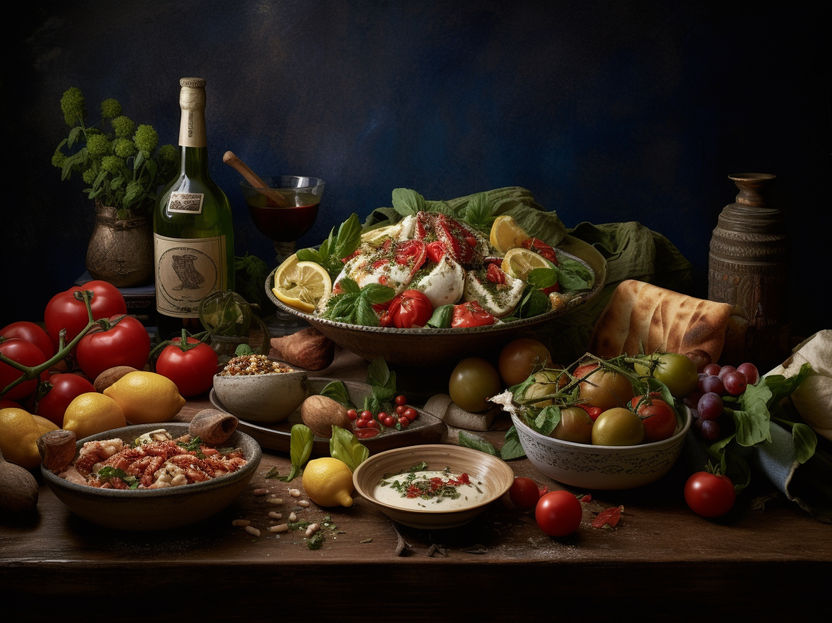
symbolic image
Imagen generada por ordenador
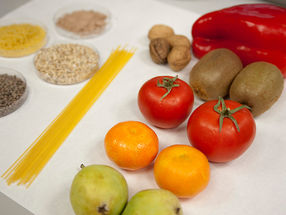
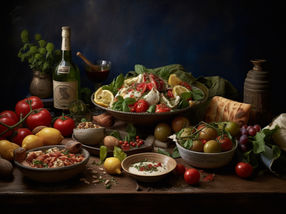
The meeting brings together Mario Díaz Esteban, from the National Museum of Natural Sciences (MNCN-CSIC), who will discuss sustainable agriculture; Dolores del Castillo, from the Food Science Research Institute (CIAL), who will explain the second life of food; Iñaki Hormaza, from the Institute of Subtropical and Mediterranean Horticulture La Mayora (IHSM), an expert in the cultivation of Mediterranean fruits; Armando Alberto, from the Blas Cabrera Institute of Physical Chemistry (IQF), an expert in biotechnology to make crops resistant to drought; Cristina García, from the Segura Center for Soil Science and Applied Biology (CEBAS), who researches the development of sustainable and safe beverages; and Isabel Riveiro, from the Spanish Institute of Oceanography (IEO) in Vigo, who studies the impact of climate change on fisheries.
The meeting will be moderated by researchers María Ángeles Martín, from the Institute of Food Science and Technology and Nutrition (ICTAN), and Tomás García Azcárate, from the Institute of Economics, Geography and Demography (IEGD).
Experts in biotechnology, agricultural and food sciences
Biologist Mario Díaz Esteban (MNCN) is an expert in the effects of agriculture on biodiversity. His team also evaluates the role of this biodiversity in the ecological and economic sustainability of agricultural systems.
"Croplands are being used more and more intensively and natural elements of the landscape that were a refuge for biodiversity are being eliminated. Parallel to intensification, there is abandonment, which is just as negative for the fauna and flora on which crops depend," says Díaz Esteban, whose team advises the Ministry of Agriculture, Fisheries and Food to evaluate systems for promoting sustainable agriculture, maintaining the original biodiversity and using funds from the European Union's Common Agricultural Policy (CAP). The agreement between CSIC and the Ministry is developed within the framework of the Interdisciplinary Thematic Platform Agriambio, coordinated by Díaz Esteban's group and integrating social, environmental and agronomic researchers.
Biochemist Dolores del Castillo and her team at the CIAL work on giving food a second life through processes that are easy to implement in the industry and to achieve sustainable health. "The goal is to bring to the consumer products that are sustainable, healthy and sensorially pleasing," says Del Castillo. Specifically, these researchers are studying the coffee husk that is generated with the coffee grounds and during roasting. "With these two products, for example, we prepare new snacks, cookies or energy bars. On the other hand, we also work on instant beverages, which have an added value, not only because of their energetic character, but also because they are a source of nutrients and bioactive compounds," he emphasizes.
Researcher Iñaki Hormaza (IHSM) and his team have introduced exotic tropical crops to adapt them to the Mediterranean climate. At the IHSM La Mayora Experimental Station they grow, among others, avocados, mangos and cherimoyas, fruits from America that are already part of the Mediterranean diet. Hormaza points out the relevance of being able to produce these fruits in Europe instead of importing them from America. "One advantage is the carbon footprint, as importing requires about three to four weeks of travel by ship, with all that this entails for the environment," he explains. "In addition, the requirements for crops in Europe are among the most restrictive in the world and this guarantees that the quality of the food and food safety are much higher than what we can get from other countries," he adds.
IQF researcher Armando Albert studies the mechanisms that activate plants in situations of environmental stress. "Plants need water to survive, but they also need to lose it through the process of transpiration, which is necessary for them to carry out photosynthesis," says Albert. In a situation of water stress, plants dehydrate by closing the pores (stomata) that regulate this process. However, his team has applied biotechnology strategies to develop a new agricultural method to control the opening and closing of the stomata and, therefore, improve crop yields in relation to the amount of water used.
CEBAS researcher Cristina García makes natural beverages enriched with bioactive compounds that come from typical products of the Mediterranean diet. "We call these beverages 3S because they are safe, healthy and sustainable," says the researcher.
"They are safe because we ensure that pasteurization or processing is optimal for each beverage, so that they do not lose nutritional properties," explains García. In addition, they are healthy beverages because they are enriched with bioactive compounds that have activity, for example, to help prevent cancer and cardiovascular or metabolic diseases. "Finally, they are sustainable, as we start from waste products from agriculture. And the bioactive compounds with which we enrich them are obtained from biostimulating the plant to produce more bioactive compounds, with which we make ingredients, or from by-products of the agri-food industry, revaluing them," says the scientist.
The researcher Isabel Riveiro, from the IEO in Vigo, explains that the Mediterranean diet includes fish as the main source of protein and also fishing as an extractive activity, which is deeply rooted in the culture of coastal communities. "Climate change has a great effect on the oceans and, therefore, on seafood, on the quality and quantity that we will be able to consume in our Mediterranean diet," he says.
"In our group we study pelagic species, such as sardines, which are the ones that experience the greatest fluctuations in catches globally and also the ones that are most affected by environmental changes," he points out. They analyze how environmental variables can affect the growth of these species and their reproduction, both from the point of view of the adults and the eggs and larvae, which are the most critical phases in the life cycle. "All this information, which we have compiled in our historical series, we will analyze through predictive models that will allow us to know what will happen in 50 or 100 years and what will be the best management strategies for a sustainable exploitation of these resources," he concludes.
Intangible heritage of humanity
The Mediterranean diet is nutritionally healthy, based on local and seasonal products, sustainable, diverse and provides social cohesion. Since 2013, it has been part of UNESCO's Intangible Cultural Heritage of Humanity, which reads, "The Mediterranean diet comprises a body of knowledge, practical skills, rituals, traditions and symbols related to agricultural crops and harvests, fishing and animal husbandry, and also to the way food is conserved, transformed, cooked, shared and consumed."
The UN warns that the health of our food depends on the health of the planet, and that a profound change in the global food and agricultural system is needed to achieve the sustainable development goal of "Ending hunger, achieving food security and improved nutrition and promoting sustainable agriculture."
Note: This article has been translated using a computer system without human intervention. LUMITOS offers these automatic translations to present a wider range of current news. Since this article has been translated with automatic translation, it is possible that it contains errors in vocabulary, syntax or grammar. The original article in Spanish can be found here.



